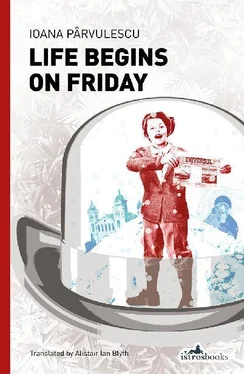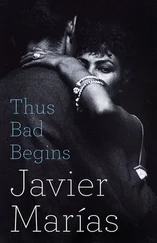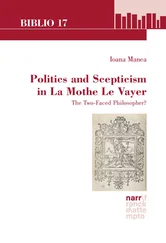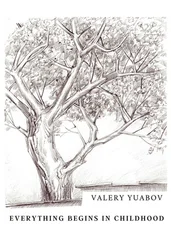…to get used to this world and I have to get used to life again, after not daring to look anybody in the eye, because of the pain… I asked what day it was and the man I share an office with told me, looking at the calendar: 23 December here, 4 January in the rest of Europe, including my mother’s country and the director’s. ‘What is your standpoint on the calendar question?’ It was lucky that he did not wait for an answer, the same as usual. But his melodious, radiant voice does me good; it keeps my feet on the ground. We went out together, the doorman saluted us, doffing his cap, and as if from some old habit that I had completely forgotten, I doffed my hat too. I have received a felt hat and a pair of black galoshes as a present. How quickly you get used to novelties, how easily wonders become ordinary. Ultimately, perhaps we were created to accept every evil and every good in order to feel our insignificance. As soon as we forget it, we are punished with blows. Perhaps we eke out our days on a prison planet, except that we have never seen our gaolers, and every time we try to revolt, we are dealt blows, but in subtle forms, invented with great imagination. I feel I am in prison. I’m not brave enough to believe myself free and I don’t know how to behave like a free man. My colleague asked me whether I wanted him to conduct me to the hotel and I barely dared to tell him that I would rather go for a walk. Politely, he didn’t insist, and bid me goodbye, and then he was gone, like a will-o’-the-wisp.
‘Mr Crețu! Mr Crețu!’
I started, took fright. It was a man with a beard like maize silk, and he nimbly leapt out of a carriage. I recognized him: the doctor who had examined me in the police cell and asked whether I had tuberculosis. I would say he is a decent fellow; he invited me to his surgery, to have a chat.
‘It’s here, close by, next to the Lyric Theatre, the one that burned down, we go straight ahead and then down Strada Sfântul Ionică, behind the National Theatre. Many actors live next door and they come to me with various ailments. You would never imagine how tortured actors how, what sufferings afflict them, when you see them on stage, bathed in lights. Excuse me if I do not shake your hand just yet.’
We both climbed into a cab.
‘To my surgery, Yevdoshka,’ said the doctor.
‘I am returning from a patient with typhoid fever, the epidemic has passed, these are the last cases, isolated ones fortunately. Look, we are just passing the house where Pascaly, the actor, died, perhaps you have heard of him: he was an Armand Duval, who broke your heart. I once visited him in the outbuilding of his house, where youngsters gather to rehearse all kinds of rôles; he was charming. He fell ill with tuberculosis and some joked: you’ve caught consumption from your lady with the camellias. After taking a cure at Reichenhal, which had not effect whatever, he came back, and one mild autumn day he gently faded away, like a candle burning out. They displayed his coffin in the Sărindar Church — it no longer even exists — and throngs of people came, actors and theatregoers of every generation, they came to see the poor Pascaly, in his final rôle, which is the same part for all of us.’
We went into a building from which hung a small sign: Dr Leon Margulis M.D. First floor , and with a shudder I wondered who was the host and who the guest, for somewhere it was my house too. A young lad opened the door for us and took my hat and coat. The doctor put down his large leather bag with the snap fastener.
‘Before I do anything else, please allow me to wash my hands and to disinfect myself. It is the first thing I must do. Please sit down.’
I looked around with a great deal of curiosity. A cupboard, a bed covered with oilcloth, a chair, a table and a screen with a floral pattern. Some shelves with coloured bottles and jars, green and blue and transparent, full of all kinds of powders and pills. On the highest shelf sat a bottle with a blue stopper, with a long slender neck, whose label read ‘Morphine,’ and another bottle, a red one, which read ‘Extract of Belladonna.’ Next to the cupboard were some anatomical charts, rolled up one next to the other. There was a white stove, with firewood neatly stacked in a niche alongside. Everything seemed very clean to me. I approached the bookshelf. Most of the books were medical. I saw Dr Petrini, Chest Complaints , Dr Felix, Dr Istrati, and a rather modest looking book by Charles Darwin, On the Origin of Species , with London, 1859 embossed on the spine. My host asked me how I felt and whether I had recovered. It was only then that he came and shook my hand, very firmly and, I thought, warmly. He seemed up to date about what had happened to me in the meantime, for this city is like a village, everybody knows everybody else. Unlike my office colleague, the doctor did not give up until he had obtained some precise answers from me. He offered me a cup of tea with rum and a slice of bread with cheese and olives.
‘Doctor, is it possible for a healthy man to have the feeling that he is living in two different worlds at the same time?’
He told me that in sensitive people it was possible for the imagination to play tricks on you, even to become inflamed, like another organ.
‘Doctor, I don’t think you have understood me: in two real worlds and with the same consistency. And in fact I was wrong when I said at the same time, I meant in succession. One comes to an end where the other begins.’
‘There are many stories, especially philosophical ones, about people who no longer know when they are dreaming and when they are awake.’
‘But I am not talking about a dream, I know the dreams, separately, in both the first world and the second.’
I saw him frown. Something seemed not to satisfy him. He looked at me suspiciously, the same as so many people do lately.
‘Might you be using me as a screen…’ and here he pointed at the floral screen in the room ‘…which is to say, might you be concealing some evil deed under the pretext that you are mentally ill, that you have lapses, that you have two personalities? I read something of the sort ten years ago — my girl Iulia urged me to — a book by Stevenson, about the strange case of Dr Jekyll, who by day healed people and by night killed them. When Stevenson died I remember that the papers said that he had suffered from lung disease his entire life and that he had great courage in fighting the illness.’
I asked his permission to light a cigarette from the tin I had received from Mirto, but he refused, saying that smoking was absolutely forbidden in his surgery. I contented myself with the rum tea, which was extraordinarily good and warmed me up. He told me that his instinct told him that I was not mentally ill, but rather a man who was sound and had his head fixed on his shoulders, although he thought that I should give up smoking, since in the long term so much smoke inside the lungs could not do any good.’
‘Nevertheless,’ I went on, barely restraining a smile, ‘nevertheless, doctor, the world I come from is just as real as this one.’
He pretended not to hear, but he fell to thinking.
‘You know,’ he said suddenly, ‘I would like to invite you to our house tomorrow evening, we will be en famille , maybe our neighbour, Mr Giuseppe, will also come, he is a very lonely man, he gives guitar and mandolin lessons, he is very short of money. Would you like to?’
I would like to: a feeling I have felt for the first time in my new world.
Wednesday, 24 December: Christmas Eve
It is as if I were being punished. The cleaning yesterday was like a war, waged by Mama and from which Papa made a cowardly desertion: he did not arrive home until the evening and was rather pensive. He told us that he had met Dan Crețu and invited him to our house, but he is not certain whether he will come, and he is a case that preoccupies him. I do not think there is one speck of dust in the house. The carpets were laid on the snow face down, having been beaten thoroughly. When you lift them from the snow, they leave a large black square. Each carpet was subjected to the same treatment a number of times, until the snow beneath it remained clean. Personally, I would like to do this kind of cleaning in my soul, but a beater has yet to be invented for the carpets of the soul. We have not progressed that far, but perhaps next century, a new Bell… I cannot believe (but why should I not?) that he has not replied! Nicu did not come back last night. Poor Jacques and I sat up waiting for him until late. Jacques played the music from the figurine clock on his flute and I kept myself busy by writing a list of presents, after which I listlessly read a few pages of Vanity Fair , although my mind was still on the letter. I like Becky less and less. I do not wish to resemble her, although I feel sorry for her more than I do for Amelia. Maybe he felt offended? I do not even have a rough copy to see what I wrote, I remember the ideas vaguely, but I no longer have a precise idea of the tone and the words. Or maybe he did not find him at home and gave the letter to his brother, and his brother has not yet given it to him? It is very bad not to know into whose hands your most intimate thoughts have fallen. Most likely, he did not bother to write to me, he has no inclination to see me, if he was not able to do so when he wanted, or maybe he is punishing me for not receiving him. I have to keep my silence and wait, an utterly insufferable task. Nevertheless, marvellous news: the abscess burst by itself, after which I washed my mouth with camomile tea and the swelling subsided. Papa said that we may delay pulling the tooth. And my eyes are better, and it is my eyes I need, in order to finish reading the novel. But I have been too self-preoccupied; it is not a good sign.
Читать дальше












